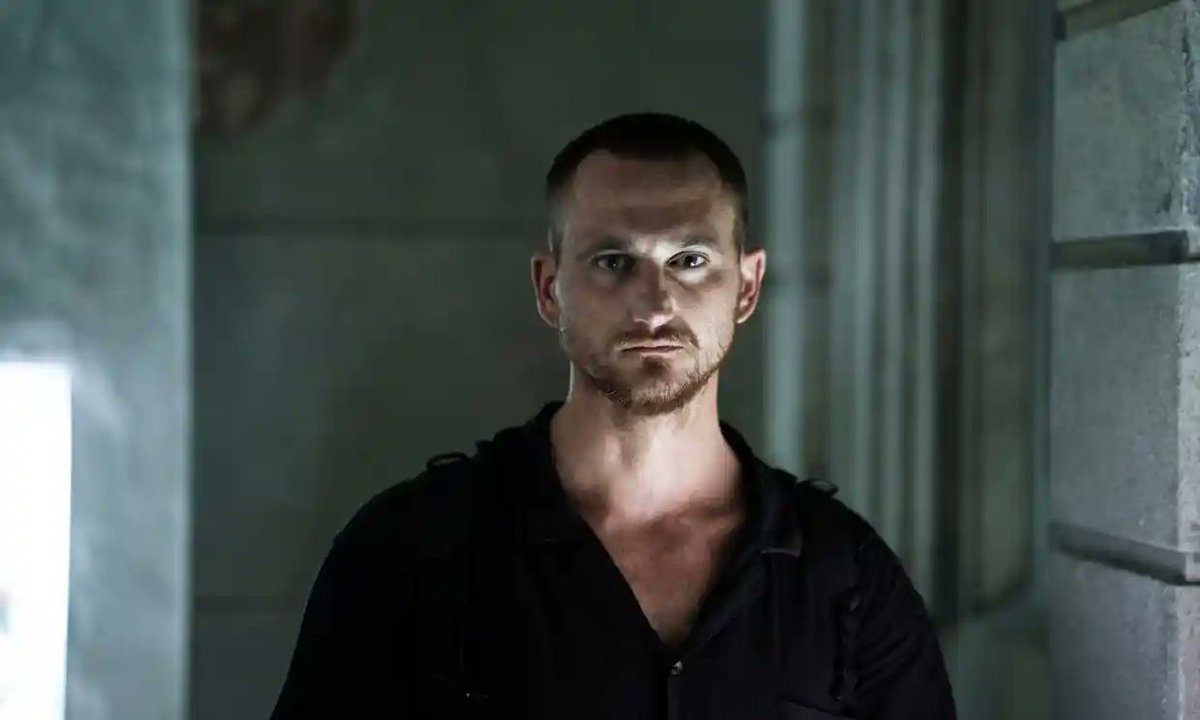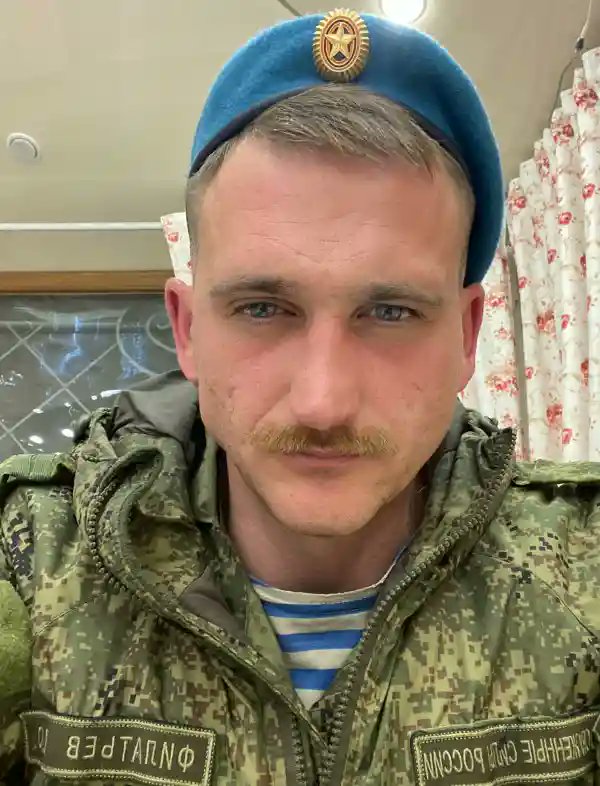
1/ On 1 March 2022, Russian forces seized the Ukrainian city of Kherson. Among them was paratrooper Pavel Filatyev, who subsequently wrote a scathing 141-page memoir about his experiences. This 🧵 continues his account of the disastrous Russian advance on Mykolaiv. 

2/ For the first part of Filatyev's story, covering the six months he spent doing training (more theoretically than in reality) with the 56th Guards Air Assault Regiment in Crimea before the war, see the thread below:
https://twitter.com/ChrisO_wiki/status/1560022545356791810
3/ The second part, covering the period immediately before and after the invasion was launched on 24 February, is here:
https://twitter.com/ChrisO_wiki/status/1560355153441705984
4/ And for the third part, highlighting the haphazard and disorganised Russian takeover of Kherson in the face of even less well organised Ukrainian resistance, see below:
https://twitter.com/ChrisO_wiki/status/1560725596765913089
5/ "Have you seen the paintings 'Barbarians in Rome' [sic]? This best illustrates what was happening," writes Filatyev of his arrival at Kherson's seaport in the early evening of 1 March. His unit took over an administrative building at the port. 

6/ "Everyone looked exhausted and feral, everyone started searching the buildings for food, water, showers, and places to sleep, and some started carrying computers and anything else of value they could find." He helped himself to some fresh clothes and champagne.
7/ Filatyev writes that he was "disgusted by the hauling around of household appliances." He understood, though, why some did it: "What's so surprising that someone couldn't resist grabbing trophies in the form of a computer if their salary doesn't allow them to buy it?"
8/ He watched the Ukrainian TV news to learn what was going on elsewhere. "All I understood was that Russian troops are advancing from all directions, Odessa, Kharkov, Kiev are occupied, they began to show footage of broken buildings and injured women and children."
9/ "I felt sorry for all the dead and wounded, especially civilians, but the news gave me a little optimism, if only our people would take Kiev, Odessa and Kharkov faster, so that all this shit would end sooner."
10/ The soldiers discovered a kitchen in the offices. After enduring a month without washing or having normal food, "we ate everything like savages, all that was there – cereal, oatmeal, jam, honey, coffee. Everything was turned upside down and we ate everything we could find."
11/ The Russians had taken over Kherson with minimal casualties, though sporadic shooting was continuing. The occupation force found itself having to deal with nearly 300,000 angry civilians. This worried Filatyev, who had no training in dealing with them. 

12/ "There is some anger [from the soldiers] towards civilians, of course I understand that we are uninvited guests here, but for their own safety they'd better stay away from us. This is not our specialisation, we are not Rosgvardiya [National Guard] or OMON [riot police]."
13/ "No one wants to explain to civilians 'why the fuck did we come here', we just do not know ourselves, the command gives orders at the last moment." Filatyev himself dealt roughly with one man, hitting him in the head with the butt of his rifle while arresting him.
14/ The Russian commanders opened negotiations with local politicians for a peaceful transfer of power. OMON and Rosgvardiya arrived on 2 March to deal with the civilians. Mercenaries from the Wagner Group's openly far-right and neo-Nazi Rusich unit also provided security. 

15/ On 3 March, to Filatyev's dismay, his unit received orders to leave Kherson's seaport and join a force heading north to take Mykolaiv and Odesa. "Do they really not understand at the top that people are exhausted?" Nonetheless, they returned to their trucks and headed out.
16/ It was soon clear that they were heading into a full-scale battle. Dismounting from their trucks, they advanced on foot across fields, under artillery bombardment, and reached an abandoned Ukrainian position, which they used for cover while shells and missiles flew overhead. 

17/ "Around us were abandoned positions and equipment of the Ukrainian Armed Forces, boxes of Javelins and abandoned Ukrainian infantry fighting vehicles. There was shooting and explosions near us but a little ahead, who, where, what is not clear." Nobody seemed to be in charge. 

18/ "When it began to get dark, our UAZ cars began to drive back past us. Stopping them and asking what's up there, I understood that ... they got into a fight, there were well-fortified Ukrainian positions ahead, it seemed that our troops were retreating randomly."
19/ After a sleepless night and rumours that the battalion commander was dead, Filatyev and his comrades dug positions in a belt of forest on the road to Mykolaiv. They came under artillery bombardment, killing and wounding several of the paratroopers. 

20/ "Hiding in a wooded area under a large tree, someone is saying to an officer hiding behind the same tree, 'Comrade Major, what should we do?' The answer is: 'I don't know what the fuck to do, I'm not a commander, I'm a political officer!'" They fled back to their trucks.
21/ "Back in the vehicles, all driving haphazardly backwards, on the way I see the [2S9 Nona self-propelled guns] of the parachute battalion taking up positions, firing towards Nikolaevsk. In general there is a feeling that everyone is retreating chaotically."
22/ Filatyev saw Russian helicopters flying back from Mykolaiv, and later learned that at least five of them had ben shot down there. "We drove back, I couldn't understand a fucking thing." The shooting stopped on someone's orders, giving him some unexpected hope. 

23/ "I got the impression that maybe we made peace... The commander said March 8th would be celebrated at home, and a couple of days ago I saw on TV ... how they were bombing Kiev and Kharkov, and there was a rumor that the marines had taken Odessa."
24/ The paratroopers retreated all the way to Kherson airport, where they reoccupied their previously dug trenches. They were reinforced with fresh artillery and infantry units, though the latter gave Filatyev no confidence at all.
25/ "The infantry were strangely dressed, old helmets and old camouflage, ... mobilized from the [Donetsk People's Republic]. We looked down on them realizing that they would be of no use to us, most of them were were about 45 years old and were dragged here by force." 

26/ Rumours also swirled that "the motorized infantry is refusing en masse to go, maybe that's why we don't get a chance to rest. There was anger at the refuseniks." The following day, the Russians made a second attempt to take Mykolaiv, once again coming under heavy fire.
27/ They took up positions somewhere on the border between the Mykolaiv and Kherson regions. Despite their small numbers, they were spread out over 20km of front lines. The advance ground to a halt under heavy bombardment, with Filatyev's mortar unit losing half its men in a day.
28/ The paratroopers remained entrenched for the next month. "It was Groundhog Day," writes Filatyev. Ukrainian artillery fired at the Russians, the Russian artillery fired at the Ukrainians, and the soldiers on both sides stayed in their trenches and endured the bombardment. 

29/ "Our air support was almost invisible. We just held our positions in the trenches at the front line, not washing, not eating, not sleeping normally. Everyone was covered in beards and dirt, uniforms and boots fell apart."
30/ There was nothing to eat but dry rations. Then the rations were limited to one pack per person every 2 days. Then the rations ran out. "After some time, some smart guy upstairs decided to put a field kitchen behind our position ... Because of it, the shelling increased." 

31/ The field kitchen food was largely inedible and most of the soldiers didn't eat it. Drones were another ever-present hazard. "Not a single clever person with stars had thought to prohibit the daily movement of vehicles, which increased the bombardment ...
32/ "From drones it was visible where the vehicle was going and it was very likely that the bombardment would follow, so almost all [incoming] equipment was destroyed." The Ukrainians counter-attacked, but the Russians held on. They endured increasingly miserable conditions.
33/ Soldiers began to shoot themselves in their limbs or otherwise injure themselves to "get out of this hellhole". "Almost everyone got fungus, some got loose teeth and their skin was peeling." The men got "angrier and angrier". Some started drinking heavily.
34/ They blamed their leadership. "Many were discussing how when they returned they were going to have to make the command answer for the [lack of] provision and illiterate leadership." They blamed the Ukrainians, whose radio broadcasts they listened to.
35/ The Russians were particularly angry at the Ukrainians for depicting them as violent, brutal 'orcs'. So they took out their frustrations on a Ukrainian prisoner of war by cutting off his fingers and genitals.
36/ At the start of April, the Russian army group attacking Kyiv withdrew. Filatyev's unit was told it was a 'gesture of goodwill' and that peace talks were underway. "I immediately said that is bullshit, no one would have brought them out like that, so the losses [must be] big."
37/ The terrors of trench warfare profoundly affected Filatyev. "Every time there was an artillery barrage, I pressed my head into the ground and [thought], 'God, if I survive, I'll do anything to change this!'" 

38/ "I don't know how, but I wanted all those responsible for the fuck-ups and messes in our army to be to be punished. I wasn't scared to die, I was offended to give up my life so ridiculously, I was hurt for all those who had given their lives and health for what, for whom?"
39/ The war ended for Filatyev a couple of weeks later. "By mid-April, I got dirt in my eyes due to artillery fire ... and keratitis started. After five days of torment, due to the threat of losing an eye, when the eye was already closed, I was evacuated."
40/ Filatyev was taken to hospital for treatment. In the next instalment, I'll cover what happened to him there, and how he turned to anti-war activism after he learned why Russia had gone to war. /end
• • •
Missing some Tweet in this thread? You can try to
force a refresh









